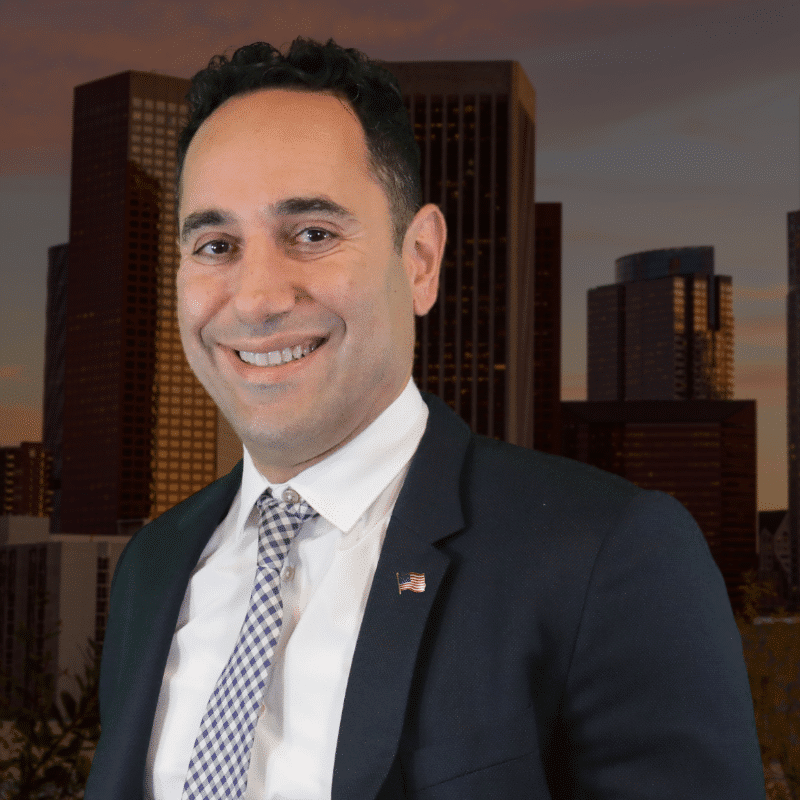Maison Law is here to help anyone injured in an accident across California.
Accidents can happen at any time, and many of them happen in the workplace. While some jobs are riskier than others, one constant is the importance of workers’ compensation insurance. This coverage is vital for your recovery in this situation, and our team is ready to help you through the claims process. Contact us today for a free consultation to learn more.

Why Would You Need a Lawyer in a Workers’ Compensation Claim?
In California, workers’ compensation insurance typically comes into play in two main ways. First, it applies when you’re injured in an accident at work. By law, most employers are required to provide workers’ compensation insurance.
However, legal issues can arise if your employer fails to provide coverage or retaliates against you for taking it. There are also situations where your accident results from someone else’s negligence. These scenarios can get complicated, but our experienced team can help you by:
- Explaining your rights and what legal steps you can take
- Figuring out how the accident happened and who is to blame
- Helping you gather proof and submit a workers’ compensation claim
- Working with your employer and insurance companies to get a fair settlement

Getting hurt makes everything harder, even if you have health insurance or workers’ compensation to cover the costs. We’re here to make things easier for you
Who’s Responsible For a Workplace Accident or Injury?
A lot of different things can happen to you at work, whether you work in an office or on a construction site. And while liability isn’t as big of a factor in workers’ financial support claims, it is if you need to take further legal action. At that point, it’s important to look at who could be responsible for causing the accident and your injuries:
- Employer – Your employer must provide a safe working environment. If your injury was caused by unsafe conditions, lack of proper training, or missing safety equipment, your employer might be at fault.
- Third parties – Some people at your job, like subcontractors or equipment manufacturers, aren’t employed by your company. If their actions or negligence caused your accident, they could be held responsible.
- Co-workers – Workers’ compensation generally protects co-workers from lawsuits. But if a co-worker acted with extreme carelessness or intentional harm, there could be exceptions.
- Property owners – If your injury happened on someone else’s property, like at a construction site, the property owner could be liable if their negligence contributed to the accident.
- Government – If the accident happened on government property or because of government negligence, a government agency might be responsible, but special legal rules apply.
When you get hurt because of someone’s negligence, it’s always frustrating, but even more so if it happens in a work setting.
But, you still have legal options, which means you need to take a disciplined approach to the steps you take after the accident itself.
What Should You Do After a Workplace Accident?
Obviously, you don’t want to get hurt anywhere–let alone at work while you’re just trying to make a living. At the same time, though, an accident is just as likely to happen to you there as anywhere else. Even with workers’ compensation insurance, it’s still important to take certain steps to protect yourself and your potential claim:
- Get medical help – The absolute first thing you should do is get medical help. Call 911 or go to a hospital or urgent care as soon as you can. If your employer has first aid available, make sure to use it.
- Tell your employer about the accident – As soon as you get hurt, tell your supervisor or management about the accident. In California, you must report workplace injuries within 30 days.
- File for workers’ compensation – Most workplace injuries are covered by workers’ compensation. Ask for the necessary form, fill it out, and give it back to your employer. They’ll keep a copy on file, but make sure you have access to it.
- Investigation – The workers’ compensation insurance company will look into your claim. This may include checking your medical records and talking to you and any witnesses.
- Medical examination – Usually, you have to see a doctor chosen by the insurance company to evaluate your injuries and suggest treatment. You can also get checked out by your own doctor.
- Disability decision – The insurance company will decide if your claim is valid and what benefits you’re able to get, like medical treatment, temporary disability payments, or job retraining.
- Mediation or hearings – If there are problems with your claim, such as disagreements about your injury or disability, you might need to go through a process to resolve these issues, which could involve negotiation, mediation, or a hearing.
- Return to work – If you’re able, your employer may offer you a position that fits your medical needs. If you can’t go back to your old job, you might get help finding new work through retraining.
Every situation is different. Some workers recover quickly, while others may take longer. The key is to follow these steps to protect your rights and keep your options open. Having the right support will help you navigate the process smoothly.
What Options Do You Have After a Workplace Accident?
With workers’ compensation, it gives you an option if you get hurt at work. But there’s other things you can do, especially if your injuries are more serious. If you’re injured due to someone else’s negligence, you still have the right to file a personal injury claim in civil court to get “damages.”
However, when workers’ compensation is involved, it adds some complexity to the situation. It doesn’t take away your right to file a claim, but the process is easier to understand if you break it down into these steps:
- Filing a workers’ compensation claim – A workers’ comp claim works similarly to an insurance claim. You file it, and the company may either offer a full settlement or provide benefits over time. Since your employer likely has workers’ compensation insurance, this should be available to you.
- Filing a lawsuit – You might file a lawsuit if you need more help after your benefits run out, or if your employer retaliates against you for filing a workers’ comp claim. Our experienced team is here to guide you through both the workers’ comp process and any legal action you may need to take to recover damages like:
- Lost wages
- Loss of future income if you’re temporarily or permanently disabled
- Medical expenses
- Costs for ongoing care
- Emotional distress
- Pain and suffering
No one wants to deal with a workplace injury, but accidents happen for many reasons. It’s important to understand your legal options to address your injuries, whether through workers’ compensation or a lawsuit.
Remember to file your lawsuit within two years of the accident to protect your rights.
Frequently Asked Questions
Not usually. Workers’ comp is designed for workplace accidents and injuries that happen on your employer’s property. However, rare situations where you’re hurt on the property while not on the clock might make you eligible for workers’ comp. Our lawyers can help you with this.
Workers’ compensation and health insurance cover many of the same things, like medical expenses and other financial needs related to an injury. The main difference is that workers’ comp is for work-related activities, while health insurance covers you in every injury situation.
No. Under the California law, being fired for filing a workers’ comp claim amounts to unlawful retaliation. This means you can file a lawsuit against your employer.
Work With Our Workers’ Compensation Lawyers in California
Any job comes with risks, but when you factor negligence into the equation, it can leave you facing a very unfortunate situation. If you’re hurt on the job, Maison Law is here to help. Our experienced California workers’ compensation lawyers can guide you through the legal process and help you recover. Contact us today for a free consultation.

Additional Resources:
- Answers for Frequently Asked Questions (FAQ)
- California FCE Workers’ Compensation Lawyer
- Cities Where We Represent Injured Workers
- Employee Types
- Injury Types
- Resources and Terminology
- Corcoran Workers’ Compensation
- Clovis Workers’ Compensation
- Delano Workers’ Compensation
- Dinuba Workers’ Compensation
- Fresno Workers’ Compensation
- Glendale Workers’ Compensation
- Hanford Workers’ Compensation
- Lancaster Workers’ Compensation
- Livermore Workers’ Compensation
- Long Beach Workers’ Compensation
- Los Angeles Workers’ Compensation
- Madera Workers’ Compensation
- Monterey Workers’ Compensation
- Oildale Workers’ Compensation
- Orange County Workers’ Compensation
- Porterville Workers’ Compensation
- Ridgecrest Workers’ Compensation
- Salinas Workers’ Compensation
- San Jose Workers’ Compensation
- San Luis Obispo Workers’ Compensation
